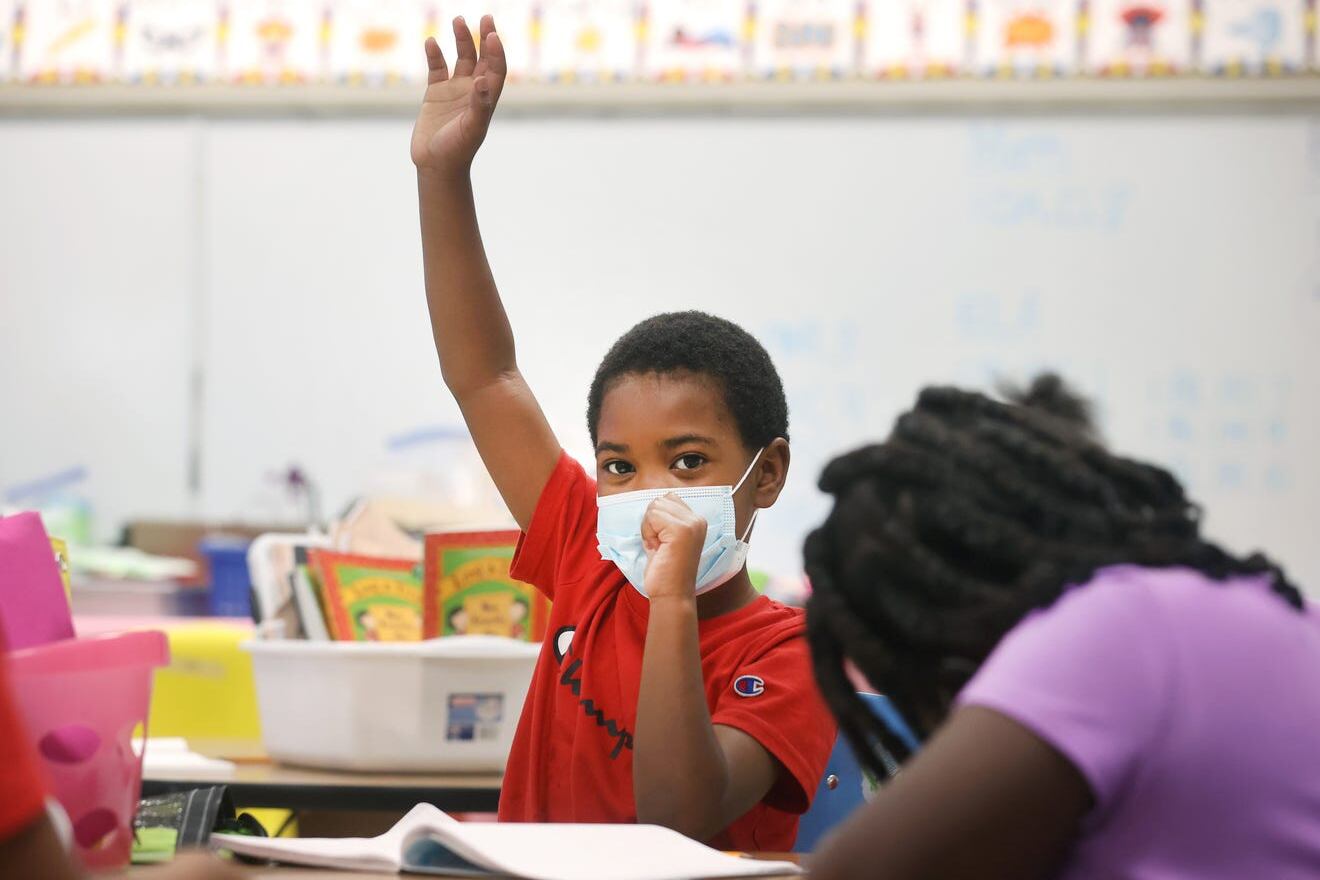Tennessee public schools may continue requiring masks for now, according to a Friday ruling by a federal judge in Nashville.
The ruling effectively blocks the state’s recently-passed law that is meant to prohibit schools from enacting mask mandates except in catastrophic situations. The law, one product of an October special session convened by Republican lawmakers to blunt COVID safety protocols, has now been blocked or blunted in federal courts in East, Middle, and West Tennessee.
The temporary order will remain in effect while the trial proceeds.
U.S. District Court Judge Waverly Crenshaw Jr.’s ruling is in response to a lawsuit filed last month by the parents of eight Tennessee students with disabilities. They contend the law doesn’t appropriately protect their children, who are at a higher risk of contracting and getting serious complications from the virus. Universal masking inside school buildings, the parents argued, is a reasonable accommodation.
Crenshaw agreed. In his 54-page ruling, Crenshaw wrote that the Tennessee law not only fails to protect all students — let alone those with disabilities — but it also does not serve the public’s best interest.
Crenshaw called the law an obstacle that prevents school districts from complying with federal Americans with Disability Law and providing “reasonable modifications in the COVID-19 era that would allow disabled children to safely enter the schoolhouse and receive an education.”
“It is in the public’s best interest to slow the spread of COVID-19 in Tennessee’s schools,” he wrote. “Defendants have proffered absolutely nothing to suggest that any harm would come from allowing school districts to determine what is best for their schools, just as they did prior to the enactment of Title 14.”
The lawsuit against Gov. Bill Lee and Education Commissioner Penny Schwinn also moves that the state’s rollback of mask mandates has put public schools in an “impossible” financial situation. On one hand, districts could lose state funds if they don’t follow state law. On the other hand, they risk losing federal aid if they don’t comply with federal disability law.
Crenshaw said the law “honors the ADA and the Rehabilitation Act more in its breach than its observance.”
Friday’s ruling comes about a month after Lee signed the COVID legislation package into law, leading to mask confusion across the state as school officials, teachers, and families juggled often conflicting mandate orders.
This is the latest ruling to uphold that universal masking at schools is a reasonable modification to protect students with disabilities, and ensure they have equal access to education. At a November hearing in Memphis, U.S. District Judge Sheryl Lipman of Tennessee’s Western District said Shelby County can enforce its health ordinances regardless of any rule or regulation “that purportedly restrains its ability to provide reasonable accommodations to schools.”
And in Knox County, a federal judge’s decision to keep school mask mandates will remain in place until the conclusion of the lawsuit, which could take months or possibly longer as the court case plays out.
During the legal wrangling, mask mandates have remained in place in the state’s two largest school districts — Memphis and Nashville — but many other districts that started the school year with mask mandates have dropped them.







